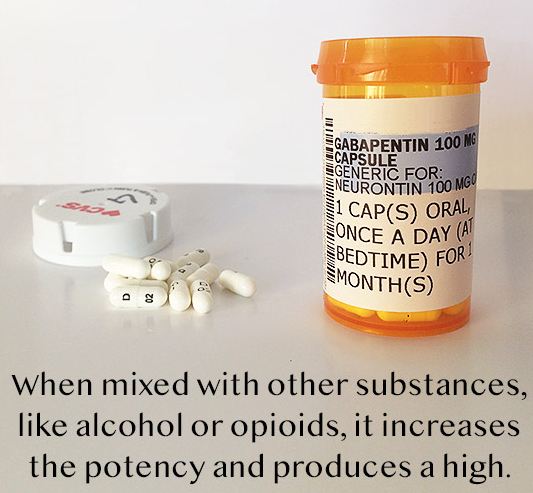A lethal dose of gabapentin was not identified in mice and rats receiving single oral doses as high as 8000 mg/kg. Signs of acute toxicity in animals included ataxia, labored breathing, ptosis, sedation, hypoactivity, or excitation.
Acute oral overdoses of NEURONTIN up to 49 grams have been reported. In these cases, double vision, slurred speech, drowsiness, lethargy, and diarrhea were observed. All patients recovered with supportive care. Coma, resolving with dialysis, has been reported in patients with chronic renal failure who were treated with NEURONTIN.
Gabapentin can be removed by hemodialysis. Although hemodialysis has not been performed in the few overdose cases reported, it may be indicated by the patient’s clinical state or in patients with significant renal impairment.
If overexposure occurs, call your poison control center at 1-800-222-1222.

Effects of Gabapentin Misuse and Abuse
Used as prescribed and not mixed with other dangerous substances, the medication is safe. However, a person abusing the drug is generally taking much more than the prescribed dose.
The effects of a gabapentin high range from an elevated mood or euphoria to a sense of calm, relaxation and improved sociability.
While the effects of misusing gabapentin sound harmless, the problem is that mixed with other substances, such as alcohol or opioids – heroin, fentanyl, prescription painkillers – it increases the potency or lethality of the other substances.
Many people have started misusing it to get high or increase the effects of other substances and it has become a favorite of opioid users to enhance the effects. Because it is not a controlled substance, it is fairly easy to find on the streets.
Refill too soon is absolutely not allowed in our pharms.